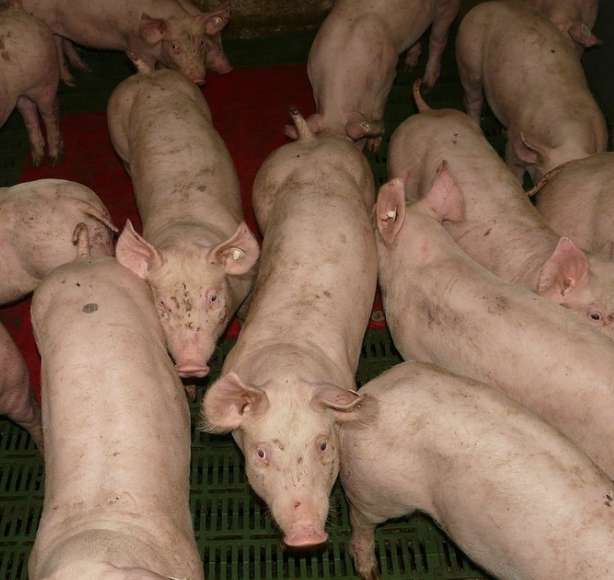Emergency Landing in Bermuda Due to Odor from Transported Swine
The Unforeseen Swine-Scented Detour: A KLM Flight’s Unexpected Layover in Bermuda
A KLM Royal Dutch Airlines flight en route from Amsterdam to Mexico City encountered an unexpected olfactory challenge that forced an unscheduled landing in Bermuda. Flight KL685, carrying 259 passengers, found its journey interrupted by an increasingly pungent odor emanating from the cargo hold. The source of the intensifying aroma? One hundred live pigs, whose collective porcine presence proved too potent for the aircraft’s ventilation system to handle.
Approximately six hours into the transatlantic flight, the captain contacted air traffic control to request an unscheduled landing at Bermuda’s L.F. Wade International Airport, citing the overwhelming odor permeating the cabin. While acknowledging the unusual nature of the situation, the pilot confirmed the presence of the porcine passengers in the cargo hold, conceding that they were the likely culprits behind the olfactory offense. He further indicated the possibility of offloading the pigs in Bermuda to alleviate the issue.
Upon landing in Bermuda late Friday, passengers and crew were provided with overnight hotel accommodations. The official reason given for the extended layover was an "oxygen issue" onboard, likely a euphemism to avoid undue alarm among the passengers. Meanwhile, the hundred hogs were deplaned, their crates loaded onto baggage carts and transported to a temporary holding area on the island. The aircraft underwent a thorough cleaning and ventilation process to eradicate the lingering porcine perfume.
The unexpected arrival of the hundred hogs presented a logistical challenge for Bermudan authorities. Dr. Jonathan Nisbett, Bermuda’s Chief Veterinary Officer, recounted receiving the initial report with limited information. The evolving nature of the situation, from an unspecified odor to the confirmation of a significant swine shipment, took him by surprise. As Dr. Nisbett and his team made their way to the airport, the full scale of the porcine predicament became clear. The manifest revealed a cargo of 4,300 kilograms (9,600 pounds) of live animals, a substantial undertaking for the island nation.
The sight that greeted the veterinary team upon arrival was memorable: three large crates containing approximately one hundred four-month-old pigs. The immediate challenge was to ensure the well-being of the animals while navigating the unexpected logistical complexities. The pigs were kept in their crates, provided with water and chicken feed, and housed temporarily in Bermuda. A special cargo plane was arranged to transport the pigs to their original destination, Mexico City, ensuring their eventual arrival, albeit delayed.
The incident highlights the unpredictable nature of air travel and the occasional challenges posed by live cargo. While transporting livestock by air is a common practice, this particular flight encountered an unusual confluence of factors that led to the unscheduled landing. The sheer number of pigs, combined with the confined space of the cargo hold and the duration of the flight, likely contributed to the overwhelming odor that forced the diversion.
The KLM flight eventually departed Bermuda for Mexico City on Saturday evening, approximately 30 hours behind schedule. The passengers, having experienced an unexpected Bermudan interlude, finally reached their destination. The pigs, after their temporary island sojourn, were also en route to Mexico City on a dedicated cargo flight.
This unusual incident underscores the importance of effective ventilation systems in aircraft, particularly those transporting live animals. It also highlights the logistical complexities and biosecurity considerations associated with international livestock transport. The efficient handling of the situation by both the airline and Bermudan authorities minimized disruption to passengers and ensured the well-being of the porcine cargo. The story of the pigs that grounded a plane serves as a reminder of the unpredictable nature of air travel and the occasional, and sometimes fragrant, challenges that arise.
Share this content:












Post Comment